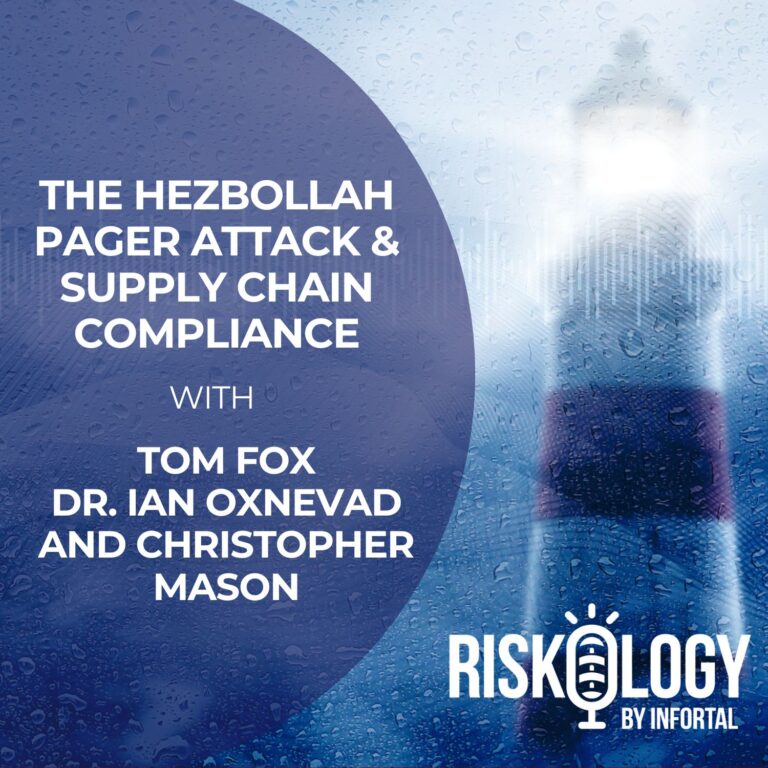Tune in for the latest episode of Riskology by Infortal™, where special guest Tom Fox of the Compliance Podcast Network and hosts Dr. Ian Oxnevad and Chris Mason dive into the business and compliance implications of Israel’s counterterrorism operation involving Hezbollah’s electronic devices.
Hezbollah’s Supply Chain Failure and Israel’s Counterterrorism Success
Israel’s counterterrorism operation in Lebanon on Hezbollah’s electronic devices serves as a stark reminder of the compliance risks that global businesses face. Even though Hezbollah is a terrorist group, the pager operation provides lessons for normal businesses.
In this particular case, a Taiwanese company called Gold Apollo licensed its name to a Hungarian company, which then manufactured and sold pagers to Hezbollah. This relationship, initially straightforward, became complex as the Hungarian company sought to evolve and use the Taiwanese company’s name to make its own proprietary designs. Ultimately, these pagers found their way into the hands of Hezbollah members.
This case raises several compliance concerns. The lack of thorough due diligence by the Taiwanese company allowed for potential misuse of their products. The complexities of tracking ownership and responsibility in global supply chains mean that even legitimate companies can become inadvertently involved in geopolitical conflicts. This event underscores the necessity for robust compliance frameworks to prevent such issues.
Supply Chain Vulnerabilities and Advanced Technology
The use of pagers to coordinate an attack highlights vulnerabilities within supply chains, especially when advanced technology is involved. It was speculated that a Hungarian company acted as a front for Mossad or other intelligence agencies. This kind of covert operation not only increases the complexity of supply chains but also the risk profile for all companies involved.
Additionally, payments originating from unnamed Middle Eastern countries were flagged by banks in Taiwan, highlighting another layer of failure. These offshore payments triggered additional scrutiny and delays, emphasizing the importance of financial transparency and thorough documentation in global transactions. While initially flagged, the transactions were ultimately serviced.
Reputational and Operational Risk Implications
All organizations use electronics tied to complex, cross-border supply chains. Understanding the makeup and oversight of the underlying supply chain should be an important consideration for selecting vendors.
Large corporations, small non-profits and even government bureaucracies can be indirectly exposed to significant reputational and operational risk if supply chains are not managed correctly, as the pager attack scenario illustrates.
At the end of the day, it pays to know who you do business with, and this requires up front due diligence.
Resources:
Chris Mason on LinkedIn
Dr. Ian Oxnevad on LinkedIn
Tom Fox on the Web | LinkedIn



